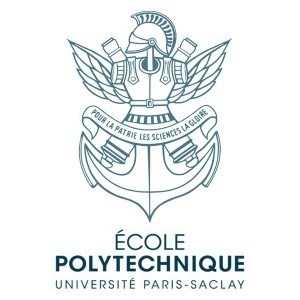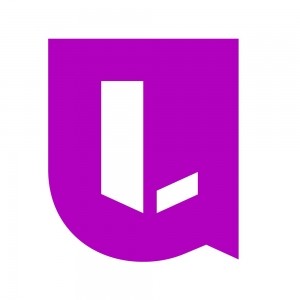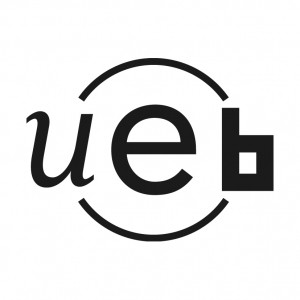Photos of university / #polytechniqueparis
Life Sciences and Technology at the Polytechnic University offers a comprehensive interdisciplinary education designed to prepare students for the evolving challenges in biological and technological fields. The program combines in-depth knowledge of biological sciences with advanced technological skills, enabling graduates to work at the forefront of innovations in biotechnology, medical diagnostics, environmental monitoring, and bioinformatics. Students will be engaged in a broad curriculum that includes molecular biology, genetics, biochemistry, microbiology, and information technology, ensuring they acquire a versatile set of competencies applicable across numerous industries. The program emphasizes practical training through laboratory work, research projects, and internships, providing hands-on experience in state-of-the-art facilities. Graduates will be equipped to analyze complex biological data, develop new biotechnological solutions, and contribute to advancements in healthcare, agriculture, and environmental sustainability. With a focus on innovation and research, students are encouraged to participate in scientific projects, collaborate with industry partners, and develop entrepreneurial skills necessary for successful careers in the rapidly growing bioeconomy sector. The curriculum is regularly updated to incorporate the latest technological developments and scientific discoveries, fostering an environment of continuous learning. The program also prepares students for postgraduate studies and research careers, offering pathways towards master's and doctoral degrees. Graduates will find employment opportunities in pharmaceutical companies, research institutes, healthcare organizations, environmental agencies, and biotech startups. Our faculty comprises leading experts in biology and technology who are dedicated to mentoring students and guiding their professional growth. The interdisciplinary approach ensures that graduates are well-versed not only in scientific theory but also in practical applications, critical thinking, and innovative problem solving. Join our Life Sciences and Technology program at the Polytechnic University to become a part of the future of biological and technological innovation, contributing to solutions that improve health, sustain the environment, and advance industry.
The bachelor's degree program in Life Sciences and Technology at the Polytechnic University offers a comprehensive curriculum designed to prepare students for the rapidly evolving fields of biology, biotechnology, and related disciplines. Throughout the program, students will develop a solid foundation in fundamental biological sciences, including molecular biology, genetics, biochemistry, and microbiology, complemented by training in modern laboratory techniques and experimental methods. The curriculum emphasizes practical skills, enabling students to carry out complex experiments, analyze data, and apply technology to real-world biological problems.
In addition to core biological courses, students are exposed to courses ininformatics, biostatistics, and data analysis to equip them with essential skills in managing and interpreting biological data. The program also includes modules in bioengineering, systems biology, and nanobiotechnology, fostering innovative approaches to biological research and technological development. Throughout their studies, students participate in laboratory work, project-based learning, and hands-on internships, often collaborating with industry partners and research institutes to gain practical experience and professional insight.
The program aims to cultivate interdisciplinary thinking, critical analysis, and problem-solving skills, preparing graduates for careers in research institutions, pharmaceutical companies, biotech startups, environmental agencies, and healthcare organizations. Students are encouraged to engage in scientific research projects, which often culminate in a thesis or dissertation, allowing them to specialize in areas such as genetic engineering, regenerative medicine, or environmental biotechnology.
Moreover, the curriculum underscores the importance of ethical considerations in biological and technological innovations, ensuring graduates are responsible and informed practitioners. The program also provides pathways for further education, including master's and doctoral studies, for those interested in pursuing academic or advanced research careers. By combining theoretical knowledge with practical application and fostering innovation, the Life Sciences and Technology program at the Polytechnic University prepares students to contribute meaningfully to advancements in biological sciences and technology sectors worldwide.
Admission requirements for the Bachelor’s degree programme in Life Sciences and Technology at the Polytechnic University typically include a completed secondary education with a suitable diploma or certificate. Applicants are expected to have a strong background in science subjects such as biology, chemistry, physics, and mathematics, demonstrating their readiness for rigorous scientific coursework. Prospective students may need to pass entrance examinations or assessments focused on mathematics and natural sciences to evaluate their foundational knowledge and problem-solving skills. Additional criteria often encompass the submission of a motivation letter, a record of extracurricular activities related to science and technology, and, in some cases, an interview process to assess the applicant’s interest and commitment to the field.
International students are usually required to provide proof of language proficiency in English or the language of instruction, such as TOEFL or IELTS scores, as applicable. Prior research, internships, or relevant work experience in biological or technological fields can be advantageous but are not always mandatory. The university may also require a filled application form, a passport copy, and official transcripts from previous educational institutions. Financial documentation might be necessary to demonstrate the ability to cover tuition and living expenses, depending on the applicant’s country of residence and visa requirements.
Applicants should ensure they meet all deadlines specified on the university’s admissions portal and submit all required documents accordingly. The selection process aims to identify candidates with a strong academic background, keen interest in interdisciplinary sciences, and the potential for success in a demanding but rewarding program. Once admitted, students are usually required to attend an orientation session and fulfill any additional prerequisites or registration steps set forth by the university. This comprehensive set of requirements ensures that candidates are well-prepared to undertake advanced studies in Life Sciences and Technology, contributing to their future careers in research, industry, or academia.
The financing of the Life Sciences and Technology program at the Polytechnic University is supported through a combination of sources, ensuring access for a diverse range of students. Primarily, studies are funded by state-funded scholarships and grants provided by the government, which cover a significant portion of tuition fees for national students meeting specific academic and social criteria. These scholarships are awarded based on academic achievement, financial need, and competitive selection processes, facilitating equal opportunities for talented students from various backgrounds.
In addition to government funding, the university offers a range of merit-based scholarships and grants for outstanding students, including those demonstrated through academic excellence, research achievements, or participation in university activities. Such scholarships are designed to encourage academic motivation and innovation within the field of Life Sciences and Technology, helping students to alleviate financial burdens associated with their studies.
Students also have access to educational loans, which are offered through partnered financial institutions and are available under favorable interest rates and repayment conditions. The university provides advisory support to guide students in obtaining and managing these loans, ensuring that financial constraints do not hinder educational pursuits.
Furthermore, the program may offer partial tuition fee waivers for students involved in research projects, internships, or extracurricular activities that contribute to the university's academic community. Some students may also participate in paid internships or research assistantships within the university or affiliated research centers, providing them with practical experience and additional income.
International students attending the Life Sciences and Technology program can explore scholarship opportunities through bilateral agreements and international partner organizations. These funding options help promote international exchange and foster global collaboration in the field of life sciences.
Overall, the financing structure of the Life Sciences and Technology program at the Polytechnic University aims to balance state support, university-based funding opportunities, and external financial aid, creating a comprehensive system that supports students throughout their educational journey. The university continuously seeks to expand its financial aid offerings and develop new funding programs to enhance accessibility and promote excellence in education.
The Bachelor of Science in Life Sciences and Technology at the Polytechnic University is a comprehensive program designed to prepare students for careers in the rapidly evolving fields of biological sciences, biotechnology, and technological innovation related to life sciences. The curriculum combines rigorous coursework in biology, chemistry, physics, and mathematics with practical laboratory experience and advanced technological training. Students acquire foundational knowledge in molecular biology, genetics, microbiology, and biochemistry, which enables them to understand complex biological systems and processes. The program emphasizes the application of modern technologies such as bioinformatics, genetic engineering, and laboratory automation, preparing graduates to meet the demands of research, development, and industry sectors in healthcare, agriculture, environmental management, and pharmaceuticals.
Throughout their studies, students benefit from state-of-the-art laboratories and research facilities that facilitate hands-on learning and experimentation. The program often collaborates with industry partners, providing internships and project opportunities that enhance practical skills and professional readiness. Additionally, students learn about the ethical, legal, and social implications of advances in life sciences, fostering responsible innovation and research practices. The curriculum is periodically updated to incorporate emerging trends and technologies in the life sciences and biotechnology fields, ensuring students remain at the forefront of scientific progress. Graduates are well-equipped to pursue advanced studies, engage in scientific research, or work in technical roles within biotech firms, pharmaceutical companies, research institutes, and governmental agencies. The program aims to develop not only technical expertise but also critical thinking, problem-solving, and effective communication skills, which are essential for successful careers in the interdisciplinary field of life sciences and technology.





